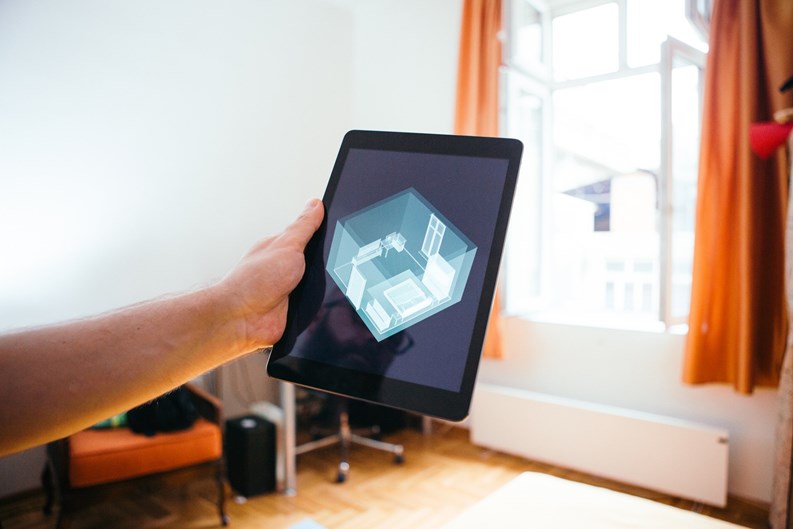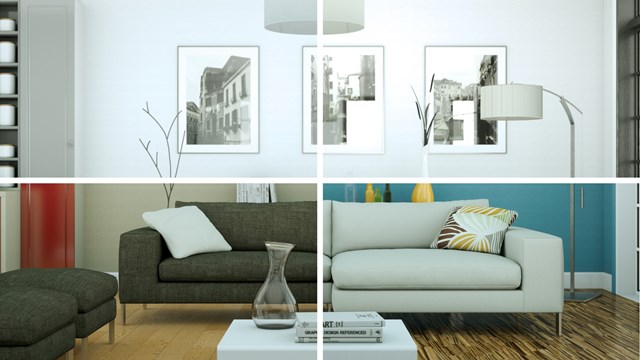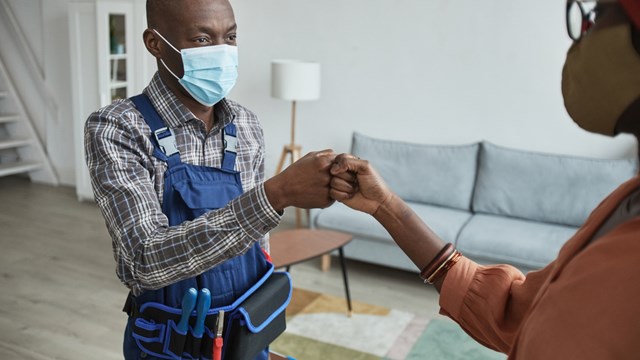At the start of the coronavirus pandemic, with traditional in-person apartment showings off the table for pretty much the entire spring season, many in the residential real estate industry scrambled to incorporate “virtual” components into their sales toolkit, employing various technologies for displaying and transmitting the looks, layout, and features of properties on the market. Now, even with many localities in various phases of reopening (or reenacting restrictions in some cases), the coronavirus’ ruthless rampage through the country is forcing this fundamentally social industry to remain socially distant … and become tech-proficient.
Upgrading Existing Tech
To adapt to this new no-contact world, Deborah Miller, a New York broker with Halstead based in their Harlem office indicates that her team is “upgrading our online presence with additional videos, Zoom and FaceTime walkthroughs, and virtual open houses.” To compensate for fewer in-person encounters, she says, agents “are talking in real time to buyers, sellers, colleagues, and prospects much more, sending fewer emails in favor of more live, person-to-person conversations on phones and other electronic devices.”
Alex Mendel, an Atlas Team member at Compass, a Miami-based brokerage with offices throughout southern Florida, notes that a simple tech upgrade helped him provide a more robust virtual experience for his clients. He tells The Cooperator, “I upgraded my iPhone from XR to an iPhone 11 for the wide-angle lens, and purchased a gimbal for it. This is much better than a standard lens on most smartphones that only captures a small portion of the home, making most spaces look and feel much smaller than they actually are. Using a wide-angle lens [to photograph a property] allows a prospective buyer who is unable to view it in person is able to get a better sense of the space - and the gimbal allows me to keep a steady view while recording, so the buyer is not distracted by any shakiness as I’m walking through the home.”
New Platforms
Mendel adds that his team recently incorporated a new platform called Matterport as part of a third-party digital marketing package the company is using to enhance their listings in the pandemic era. Prospective buyers open Matterport on their own screen while an Atlas agent conducts a virtual showing. The detailed video shots and 3D walk-through capability of Matterport give clients “a better sense of the layout of the home without having to be there in person,” Mendel explains.
With a background in design and marketing, real estate agent Jesse Gerstein [full disclosure: husband of the author] with Level Group in New York developed his own virtual tour capability well before the pandemic began, with the intention of integrating what was previously a high-cost add-on into any of his listings, regardless of price point. The 360 Agents allows Gerstein’s clients to use any handheld device or desktop to virtually experience a unit for sale or rent. This type of ‘tour’ was once mostly limited to the luxury sector—usually in newly-constructed buildings or those in development. With adaptations to new technology, however, Gerstein is able to bring the experience to a wider range of apartment seekers.
Gerstein’s platform has allowed him to seamlessly transition to the predominantly virtual real estate experience of the coronavirus pandemic. By limiting entry into a unit to just himself and his tripod, he can position a home for sale or rent while avoiding risky face-to-face interaction or excess physical contact. Using a special 360-degree camera to capture every nook and cranny of a room, Gerstein then pieces together the entire layout of the apartment, allowing the viewer to essentially travel from room to room and look in every direction in the same manner as they would if they were standing physically in the home.
A Panoply of Policies
As The Cooperator has previously reported, even in cities that are reopening, the governing boards of co-op and condo buildings have adopted varying approaches to handling unit sales. By and large, they are keeping traditional, in-person open houses out of the picture for the time being. Where individual in-person showings are allowed, says Shaun Osher, CEO of CORE NYC, “Every building management has made their own criteria for showings.” Brokers have had to adapt to new rules and restrictions that vary from building to building.
Jared Antin, director of sales at Manhattan-based brokerage firm Elegran, adds, “Buildings are developing their own visitor, showing, elevator, and amenity-use policies. … Agents will need to stay on top of an ever-changing array of policies that are bound to differ from building to building based on the size, composition, and amenities of each.”
In this environment, agents and prospective homebuyers alike will need to be open to new technology and invest in upgrades to make their virtual experiences as close to the real thing as possible. Since buying a home is one of the biggest investments an individual or household might make in their lifetime, being familiar with and taking advantage of the latest gadgets and software will allow them to stay competitive in what is sure to be a buyer’s market in many of the nation’s denser areas.







Leave a Comment